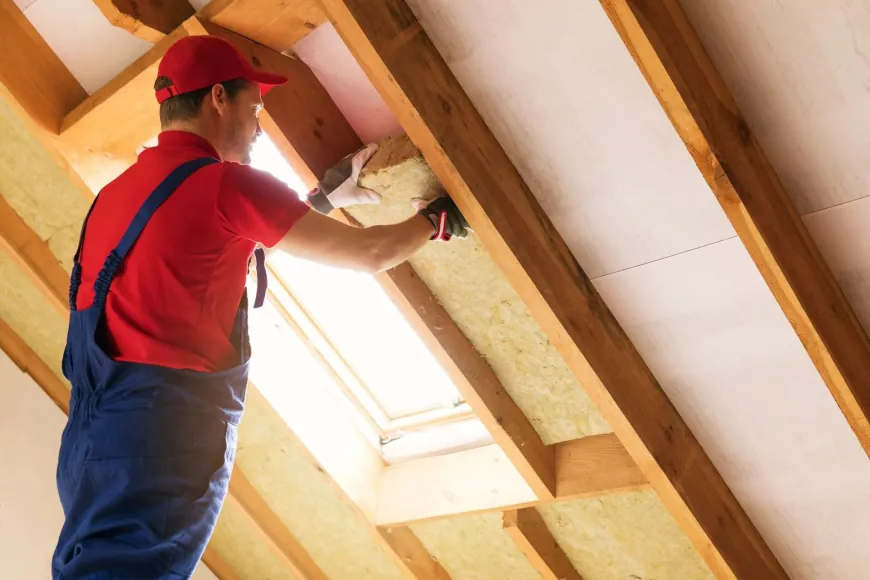Choosing the Right Insulation for Your Commercial Property

When it comes to insulating a commercial property, the choices can seem overwhelming. Making the right decision is crucial for comfort, energy efficiency, and cost-effectiveness. This guide will help property owners and managers in Austin, Texas, and surrounding areas like Travis County, Lee County, Milam County, Bastrop County, Washington County, and Burleson County understand the various insulation options available and how to select the best one for their needs.
Understanding Insulation Types
Insulation plays a vital role in maintaining the internal climate of a commercial space. It can reduce energy costs, enhance comfort, and prolong the lifespan of the building. The most common types of insulation include:
Spray Foam Insulation
Spray foam insulation is one of the most effective types available today. It expands on application, filling gaps and creating an airtight seal that keeps heat in during winter and cool air in during summer.
-
Energy Efficiency: Spray foam insulation can reduce energy bills significantly by preventing air leaks. This is particularly beneficial for commercial properties with large spaces, where temperature regulation can be challenging.
-
Sound Absorption: This type of insulation also serves as an effective sound barrier, making it ideal for offices and shared spaces in Austin, where noise pollution can disrupt productivity.
Fiberglass Insulation
Fiberglass insulation is another popular choice among property owners. It consists of tiny glass fibers that trap air, which helps to resist heat flow.
-
Cost-Effectiveness: Generally, fiberglass insulation is less expensive than spray foam, making it a more budget-friendly option for larger projects.
-
Installation: Fiberglass can be installed as batts or rolls, allowing for flexibility in different types of spaces.
Cellulose Insulation
Cellulose insulation is made from recycled paper products, making it an eco-friendly option.
-
Sustainability: For businesses in Austin looking to reduce their carbon footprint, cellulose insulation is a great choice.
-
Fire Resistance: Treated with fire-retardant chemicals, cellulose is safe for use in commercial buildings.
Factors to Consider When Choosing Insulation
Choosing the right insulation isn't just about the material; it involves several factors that can affect performance and cost.
R-Value
The R-value measures the insulation's ability to resist heat flow. Higher R-values indicate better insulation.
-
Climate Impact: Given Austin's hot summers and mild winters, insulation with a high R-value is essential for energy efficiency.
Building Codes and Regulations
Before selecting insulation, familiarize yourself with local building codes and regulations in Austin and surrounding counties.
-
Compliance: Ensuring compliance will avoid potential fines and ensure the safety and comfort of the building occupants.
Installation Method
Proper installation is critical to the effectiveness of insulation. Consider whether the insulation will be installed by professionals or as a DIY project.
-
Expertise Matters: Professional installation can guarantee that the insulation performs optimally, especially in a commercial setting where safety and comfort are paramount.
Pros and Cons of Popular Insulation Types
Understanding the advantages and disadvantages of different insulation types can make the decision-making process easier.
Spray Foam Insulation
Pros:
-
Excellent air sealing properties
-
High R-value
-
Reduces energy bills
Cons:
-
Higher upfront cost
-
Requires professional installation
Fiberglass Insulation
Pros:
-
Cost-effective
-
Easy to install
-
Non-combustible
Cons:
-
Can be irritating to skin
-
Requires proper installation for effectiveness
Cellulose Insulation
Pros:
-
Eco-friendly
-
Good soundproofing qualities
Cons:
-
May settle over time
-
Requires professional installation to ensure effectiveness
Geographic Considerations for Insulation in Austin, Texas
Choosing insulation also involves considering geographic and climatic factors. Austin's weather is characterized by hot summers and mild winters, which makes energy efficiency crucial.
Climate Considerations
-
Heat Resistance: Materials with higher R-values will perform better in maintaining a stable internal temperature during the hot months.
-
Humidity Control: The insulation must also help control humidity, which is important in preventing mold growth and maintaining indoor air quality.
Local Regulations
Each area within Texas may have different regulations regarding insulation materials and methods. It is essential to check local codes to ensure compliance.
Frequently Asked Questions (FAQs)
1. What is the best insulation for commercial properties in Austin?
-
The best insulation depends on your specific needs, but spray foam insulation is often recommended for its energy efficiency and air sealing properties.
2. How can I determine the R-value needed for my building?
-
The R-value required will depend on your building's design, location, and climate. Consulting with a local insulation expert can provide tailored recommendations.
3. Is professional installation necessary?
-
While some insulation types can be installed by property owners, professional installation is recommended for optimal performance and compliance with building codes.
4. How does insulation impact energy bills?
-
Proper insulation can significantly reduce energy bills by minimizing the need for heating and cooling systems to work overtime, thus enhancing energy efficiency.
5. What should I do if I have existing insulation?
-
Evaluate the condition and effectiveness of your current insulation. If it is outdated or damaged, consider replacing or upgrading it to improve energy efficiency.
Conclusion
Choosing the right insulation for a commercial property in Austin requires careful consideration of various factors, including R-value, installation methods, and local regulations. Spray foam, fiberglass, and cellulose each have unique benefits and drawbacks that can impact your decision. Understanding these elements will help you make an informed choice that enhances comfort and energy efficiency.
For expert assistance in insulation choices, reach out to H&H Spray Foam & Drywall at (979) 402-2360 or (737) 225-9090. They can provide tailored recommendations for your property in Austin or any surrounding counties like Williamson, Burleson, and beyond












